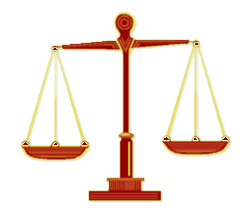Judicial nullification
the legal principle that any federal enactment which is not "made in Pursuance" of the Constitution under Article VI, Clause 2 is ipso facto null and void From Wikipedia, the free encyclopedia
Remove ads
Judicial nullification is a term that is sometimes used to mean jury nullification. More often, it means nullifying a law, legal code, or statute by a member of the judiciary or the right of judges to nullify (make invalid) a law if they feel it is too harsh in a certain situation in which it is being applied.[1] During the Constitutional Convention, many delegates, including George Mason, Elbridge Gerry, and James Wilson, felt that courts could decide if laws wereunconstitutional and then refuse to enforce it.[2] However, other Founding Fathers, including John Francis Mercer, Gouverneur Morris, and John Dickinson, argued against allowing judges to have that power.[2]

The issue was left unanswered. However, when deciding that a new law needed the approval of the President, all attempts to have the judiciary approve new laws were soundly defeated.[2]
In 1832, South Carolina decided that a new tariff law was unconstitutional and so was not really a law. Vice President John C. Calhoun agreed, but President Andrew Jackson disagreed and threatened to send troops. The two sides negotiated,and eventually, the U.S. Congress changed the tariff, and South Carolina decided the new law was not against the U.S. Constitution.
In 2011, the U.S. Supreme Court made a ruling that in essence decided that judges of lower courts may ignore the law.[3] There were three petitions before the Court that asked if federal courts needed to be stopped from ignoring laws, rules, and facts.[3] The Supreme Court refused to grant certiorari, a writ seeking judicial review of a matter.[3] In other words, the Court refused to consider the three petitions.[3]
Remove ads
References
Wikiwand - on
Seamless Wikipedia browsing. On steroids.
Remove ads
